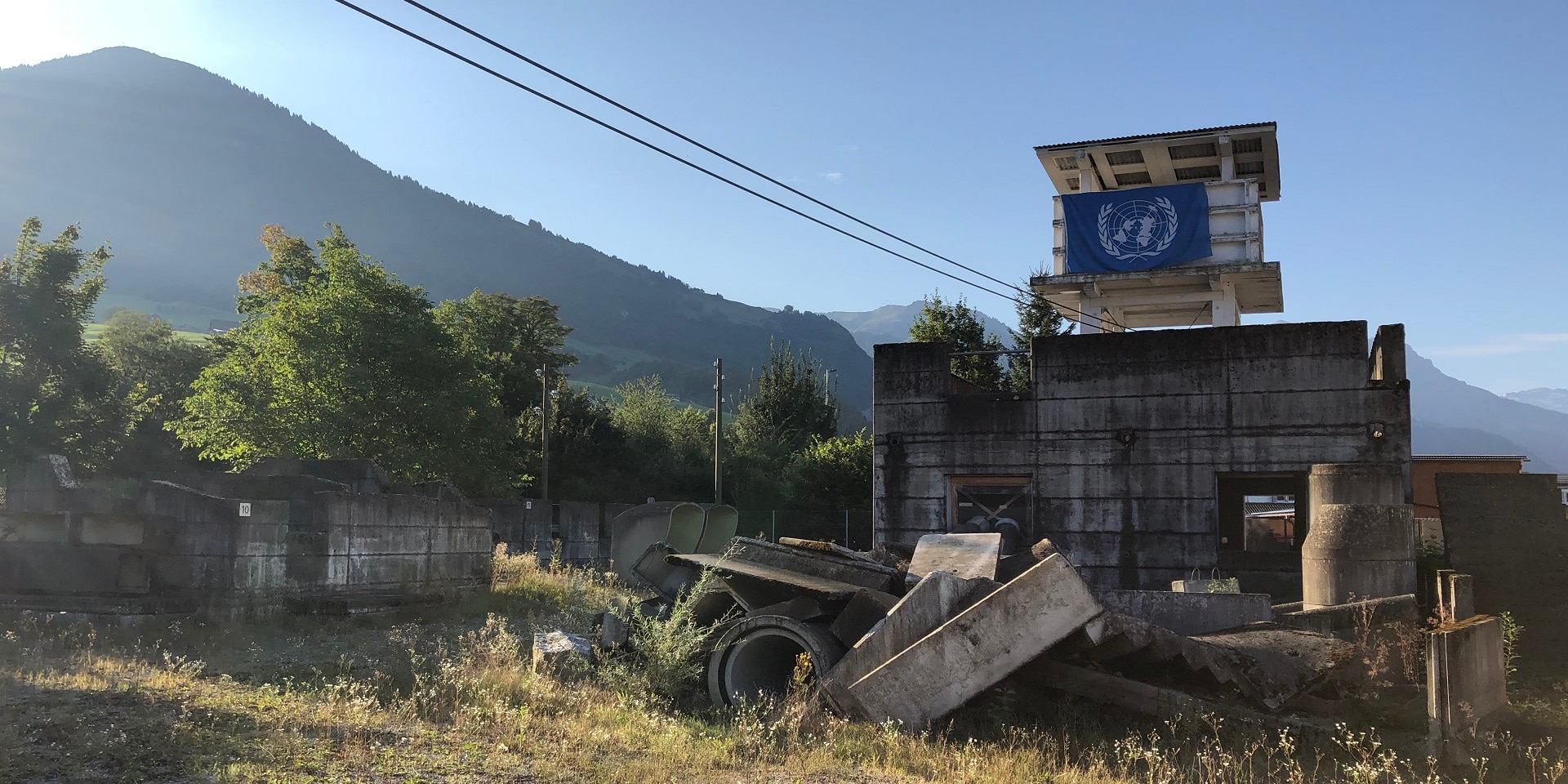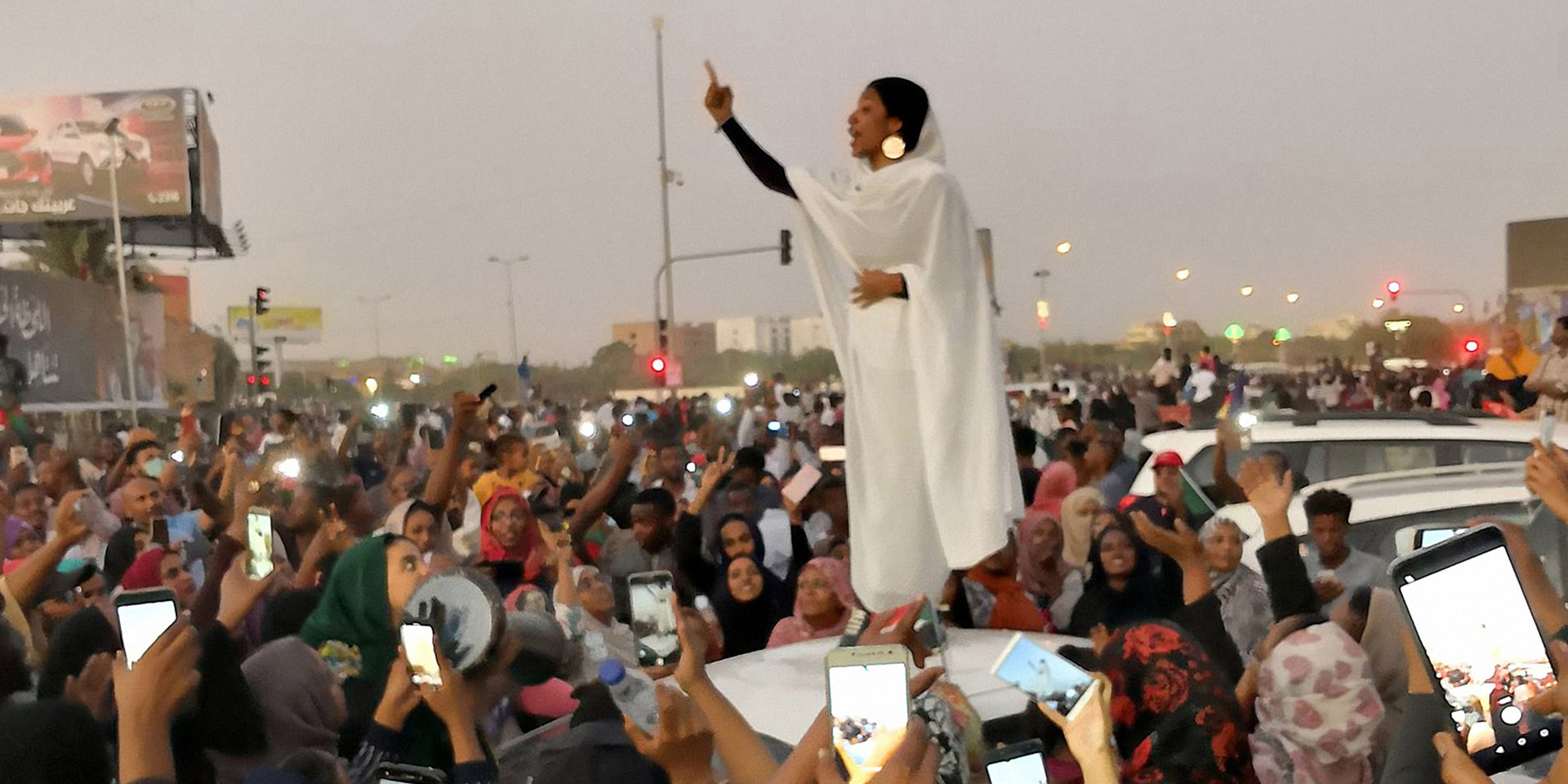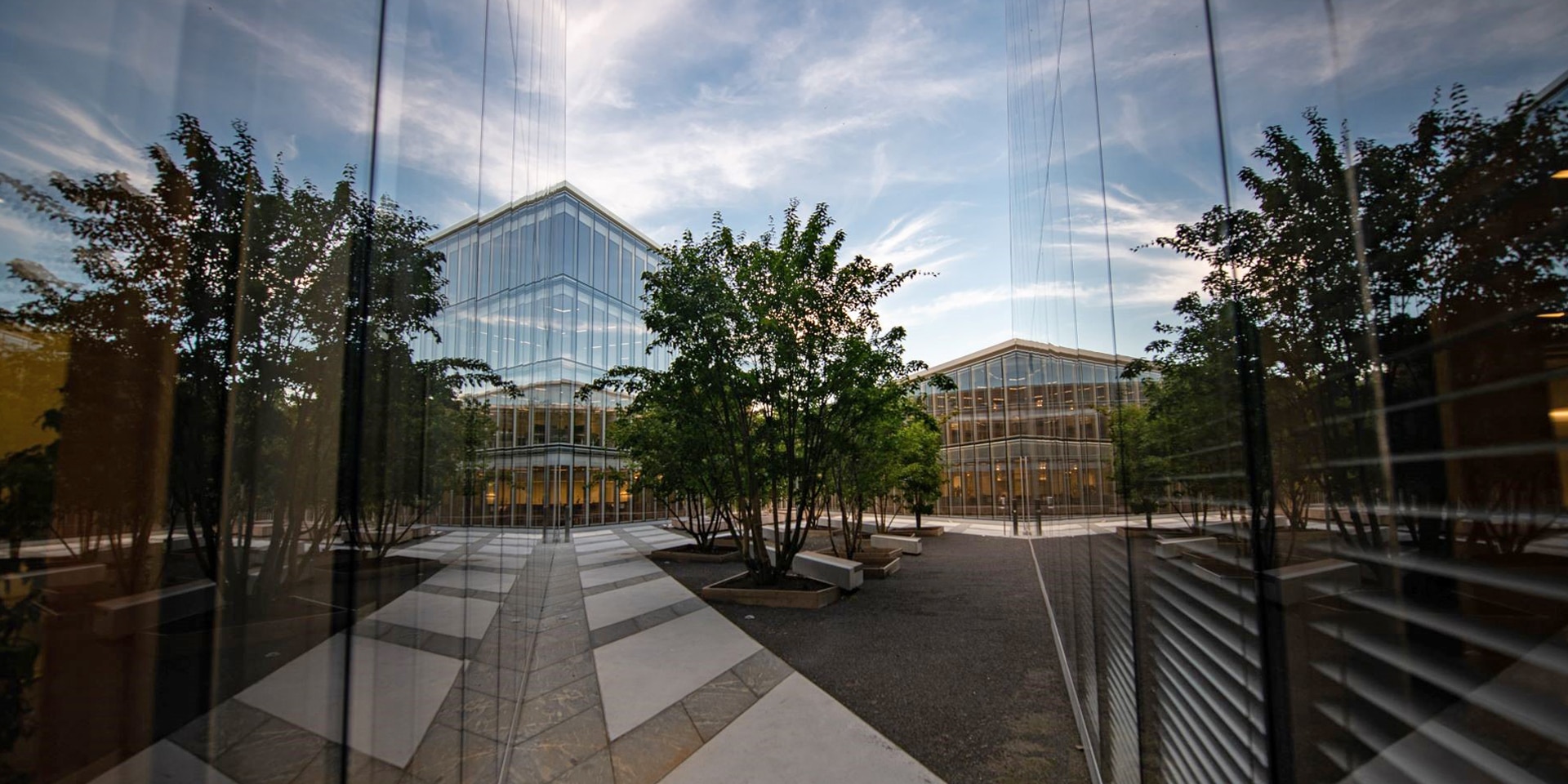Confronting the risks faced by female journalists in Europe
The situation facing female journalists is deteriorating in many parts of the world – including in some unexpected places. Director Javier Luque, who works as a coordinator at the International Press Institute (IPI), explores this issue in a film screened at the Lugano Human Rights Film Festival in early October. Produced as part of an Organization for Security and Co-operation in Europe (OSCE) project, the film was also supported by the Peace and Human Rights Division of the Swiss Federal Department of Foreign Affairs (FDFA).
Javier Luque's film "A Dark Place" was made as part of an OSCE project funded by the Peace and Human Rights Division of the FDFA. © OSCE
It isn't easy to talk about the changing – and in some cases worsening – status of human rights in countries where the freedom to think, act and express oneself is taken for granted. Nor is it easy to explain that problems exist even in places where the principles of democracy appear to be universally accepted by the population. Yet there are people who are determined to do precisely that. Their message? Nowhere, it seems, is perfect.
What Javier Luque presented that evening in Lugano was the culmination of years of research and investigation. He was in Ticino for the screening of his film A Dark Place at the Lugano Human Rights Film Festival, which has been held there every year since 2014. The documentary was produced as part of an OSCE project to safeguard female journalists online, and features a number of women journalists who have suffered online harassment because of their work.
The feature-length film describes, through testimonies, the complex and sometimes desperate plight of women journalists in an environment where a person's gender can often determine whether or not they are believed. Belittled, threatened, harassed and sometimes even physically assaulted, these female reporters are an easy target for those with an axe to grind. What's more, there are often no real structures in place within the profession to defend their work. "This issue is much more widespread than people think, including in countries that observe the rule of law," says Javier.
OSCE media freedom representative in Switzerland in November
The OSCE's Representative on Freedom of the Media (RFoM) Teresa Ribeiro paid a working visit to Switzerland on 8 and 9 November 2021. After being received by Federal Councillor Simonetta Sommaruga, she met with State Secretary Livia Leu and other FDFA representatives to discuss the situation facing journalists around the world.
The RFoM plays a central role in promoting freedom of expression and freedom of the media in the Euro-Atlantic area, as well as providing early warning of infringements and attacks targeting the media and journalists.
Ribeiro, from Portugal, has held the role since 2020, preparing detailed biannual reports for the OSCE Permanent Council analysing the situation of the media and media professionals in member states. Switzerland supports the RFoM's mandate both politically and financially. The FDFA's Peace and Human Rights Division is currently funding two OSCE projects in this area, one relating to the safety of female journalists online, the other concerning the impact of artificial intelligence on freedom of expression.
Javier Luque's film was produced as part of the first of these projects.
An attack on freedom of expression and the right to information that affects everyone
"I wouldn't have been surprised at these kinds of attacks sometimes happening in Russia, but I'd never have imagined they could happen in countries like France, the United States or Switzerland." These words, confided directly to Javier by a female schoolteacher in Russia, highlight that this is a global phenomenon affecting all regions and countries.
As a digital media coordinator at the IPI, a non-governmental organisation based in Vienna, Javier works on a daily basis to raise international awareness of the harassment often faced by journalists – especially female journalists – in the course of their work. As well as informing newspaper editors in a number of countries about these issues, he also puts pressure on policymakers. "What you have to realise is that if these attacks are successful, they won't just undermine the human rights of the individuals concerned, but also the right to freedom of expression and the right to information," he explains. "So this affects everyone."
Abuse fostered by polarisation of society
The OSCE's Representative on Freedom of the Media Teresa Ribeiro makes the same point. "The public's trust in news organisations and journalists has eroded in recent years. The media is in a transitional phase," she said in her discussions with State Secretary Livia Leu on 9 November.
"That trust is eroding most in the most polarised societies," adds Javier Luque. This explains why attacks on the press and journalists have increased around the world during the COVID-19 crisis, with female journalists disproportionately affected. Governments and policymakers have a role and a duty in this regard. "While news organisation have a responsibility to put in place support structures for their reporters, political authorities also have a duty to tackle the proliferation of attacks against journalists," the IPI coordinator goes on.
It is indeed the duty of governments to provide adequate responses to any reports of abuse contravening human rights, and specifically those of journalists. "We have to instil a culture in which journalists feel safe and abuse is reported to the authorities. Support mechanisms need to be put in place at all levels," says Javier. Key to this is multilateral dialogue and exchange – a process in which Switzerland is heavily involved (see box).
Switzerland supports OSCE's work on press freedom
As the Office of the RFoM prepares to celebrate its 25th anniversary in 2022, special emphasis will be placed on the protection of female journalists, among other issues. During her visit to Switzerland, RFoM Teresa Ribeiro and Ambassador Simon Geissbühler signed an agreement marking the launch of the second phase of the OSCE's Safety of Female Journalists Online project.
Switzerland has excellent working relations with the RFoM Office, as Ms Ribeiro gratefully acknowledged. The country is currently leading the way in support for the protection of female journalists.
In addition, alongside its political and financial commitment to OSCE projects, Switzerland – via its Federal Office of Communications (OFCOM) – is developing a national action plan to protect media professionals in the country. This national action plan could be used to further the cause internationally.
Moreover, all of Switzerland's action in this area is incorporated into the Foreign Policy Strategy 2020–23 and the FDFA's Guidelines on Human Rights 2021−24.



